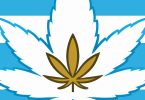Hemp’s role in the US economy and society throughout history has gone through an ebb and flow. By the late 19th and early 20th century, hemp was viewed as a robust natural fiber with multiple uses. As a matter of fact, hemp fibers were widely used during WWII in uniforms, parachutes, tents, and other military gear. At the end of WWII in 1945, hemp’s position as an agricultural commodity largely vanished.
It took over half a century for hemp to re-emerge into the public discourse as a valuable natural fiber, as just recently the 2019 Farm Bill effectively legalized hemp for industrial cultivation. But, skepticism of hemp-based products like cannabidiol (CBD) remains within the US government, particularly at the FDA.
To date, the FDA’s stance on hemp remains largely unclear. Commenting on products with cannabis-derived compounds, “The FDA is working to answer questions about the science, safety, and quality of products containing cannabis and cannabis-derived compounds, particularly CBD.” Currently, the FDA has granted approval to only one CBD-based product, a prescription drug used to treat specific forms of epilepsy called Epidiolex.
Although CBD has received FDA approval as a treatment in this case, the FDA remains uncertain as to the health effects and safety of CBD in general. As such, marketing any CBD-infused food products or CBD products as dietary supplements is currently illegal according to FDA rulings. Since hemp is an integral ingredient in CBD products, its legal position is still quite shaky.
For hemp products to enjoy the benefits of full legalization, they will need to undergo further testing and earn the ever so valuable stamp of FDA approval. Until then, hemp will remain in a gray area as will the cannabis industry as a whole. Unfortunately, the timetable for greater guidance by the FDA is unknown. All we can do is wait and see where the government will fall on this issue.










